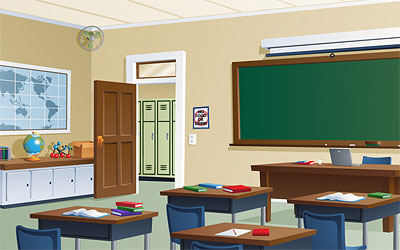It seems like everywhere you turn, you can find a study that says that the teacher is the number one factor impacting student achievement. No kidding, right? I think many of us in the field have known this for a long time.
Last summer I spent time reflecting on the qualities and skills that effective teachers possess. Effective is the key word in this equation. There is a difference between experience and effectiveness. Not to say that experience doesn’t breed effectiveness, but a lot of experience is not always necessary to be effective.
An effective teacher is not only the master of her content area but she is acutely aware of the learning styles, abilities, and backgrounds of her students. She differentiates instruction whenever possible to meet the needs of all students. She also understands that assignments should be meaningful extensions of the lesson, giving students the opportunity to practice and expand on their learning.
An effective teacher constantly assesses her students’ understanding through ongoing formative assessment while she is teaching so she can use this data to plan her instruction.
An effective teacher shares what she wants her students to know prior to teaching them so they know what their target is. She also provides students with additional opportunities to master content if they were not successful even after a summative assessment has been administered. She ensures that the grades students earn reflect mastery of the content and are not clouded by learning behaviors.
An effective teacher is reflective and monitors the impact of the materials and technology she uses, the format in which she presents the material, and the strategies and assessment tools she implements. She adjusts and tweaks these things as needed.
An effective teacher rarely has significant discipline issues in her classroom because she knows that the best classroom management is good instruction. When students are engaged, motivated, and feel their input is valued they are less likely to act out in class. This is supported through providing fair and clear expectations and boundaries where students are held accountable.
An effective teacher collaborates with colleagues. She shares with others the things she finds successful and asks for assistance when she is struggling or needs a fresh perspective. She is a contributing member of her team and department and encourages other team members to draw on their strengths to support student achievement. She knows that together they are stronger, and that as a learning community they will meet with more success.
An effective teacher values the importance of continued professional development and lifelong learning. She knows there is always more to learn and different theories and methods to explore.
Wow. There are many qualities and skills necessary to be an effective teacher. We are lucky to have the opportunity to impact young lives in such a profound way.
So why do so many teachers think they need to figure out all of these things on their own? Is that even possible? I don’t think so, but I feel that many in our profession do.
It is the end of the “Close Your Door and Do Your Own Thing” era. Do we think we will be looked down upon if we don’t have all the answers and ideas ourselves? I certainly hope that school administrators advocate for exactly the opposite and encourage a culture of sharing and collaboration.
The most important factor in student achievement is the teacher, not a product or a program … the teacher. I believe that the number one way to be an effective teacher is through collaboration with colleagues.
As we start the second half of this school year, make a promise to yourself, your colleagues, and your students to challenge yourself to step outside your classroom and collaborate with others. Observe a colleague. Ask a colleague to observe you. Share an idea and ask for constructive feedback. Talk with an academic coach or subject area supervisor. Engage in courageous dialog without fearing that someone may disagree with you. Welcome different perspectives and ideas.
More than ever before, we need to work together to better ourselves and our profession. In this age of high stakes testing, the need to prepare students to be college and career ready, and with a changing teacher evaluation system we need to support one another. Our success and our students’ achievement are directly tied to our commitment to learn from, with, and on behalf of one another.
Make 2014 the most collaborative year ever!
Krista M. Venza is an instructional support facilitator at Owen J. Roberts Middle School, Pottstown, PA. E-mail: KVenza@ojrsd.com
